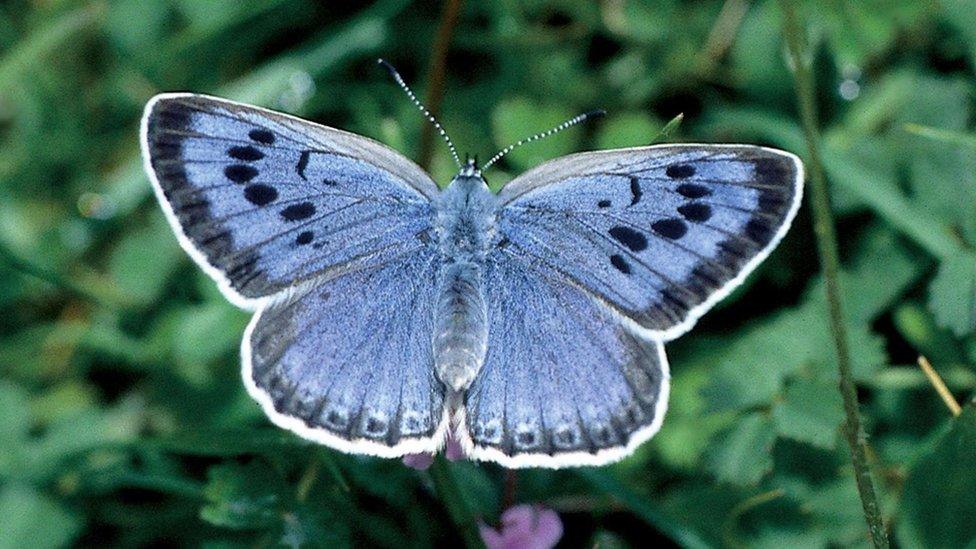Man guilty of capturing and killing UK's rarest butterfly
- Published
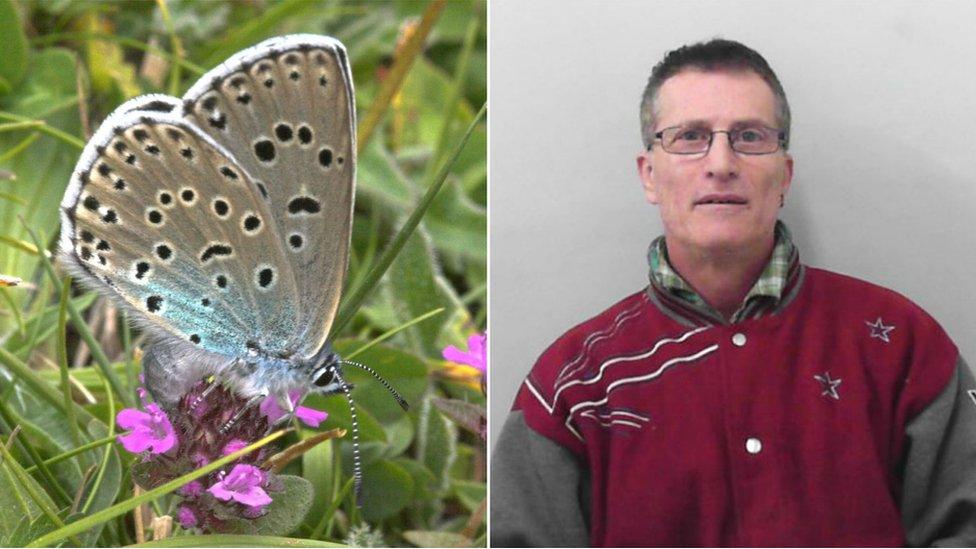
Phillip Cullen captured and killed the Large Blue - the largest and rarest of blue butterflies
A collector has been found guilty of capturing and killing the UK's rarest butterfly.
Phillip Cullen, 57, of Cadbury Heath in Bristol, committed six offences relating to Large Blue butterflies.
Bristol Magistrates Court heard he caught butterflies in Somerset and Gloucestershire and then killed and mounted them for a wall display.
His is believed to be the first prosecution in the UK involving offences related to the species.
Cullen was seen illegally entering and chasing butterflies with a net at Daneway Banks reserve in Gloucestershire on 18 June 2015.
He was also witnessed acting in a similar way at Collard Hill reserve in Somerset between 17 and 20 June the same year.
It was reported to police who searched his home and found up to 30 trays of butterflies.
Cullen had denied catching the Large Blue species found at his home, instead insisting he had purchased them from abroad.
He was convicted of capturing, killing and possessing the insect.

Butterfly laws
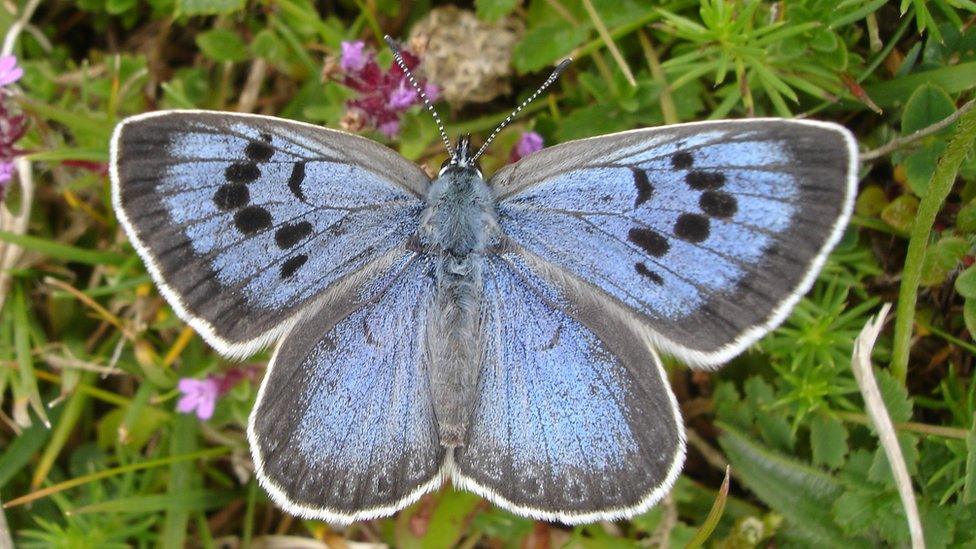
There are 59 species of UK butterfly, 25 of which are under some form of protection
Six species are fully protected, including the Large Blue, which means they cannot be collected, sold or killed
A further 19 species are partially protected, which means it is illegal to sell them, dead or alive
It is illegal to collect any butterfly species from any Site of Special Scientific Interest in the UK
It is legal to possess insect collections only if they were taken from the wild without contravening the law
Source: Butterfly Conservation, external

The Large Blue (Maculinea arion) species became extinct in 1979 but is now thriving after reintroduction in 2004.
In 2004 it was found on nine sites in the country following a major conservation programme.
It has a wingspan of more than two inches and can be identified by a row of black spots on its upper forewing.
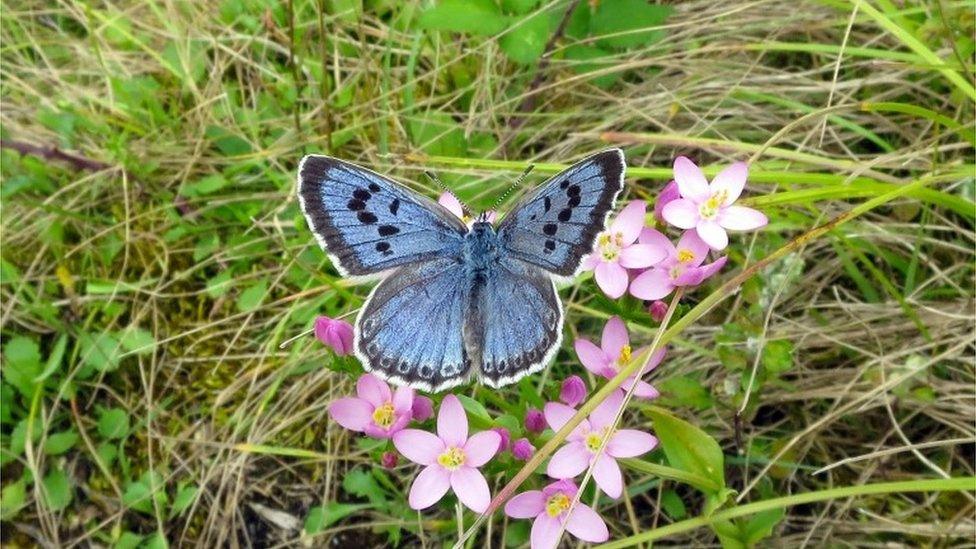
The butterfly is thriving on reserves in Gloucestershire and Somerset
- Published10 January 2017
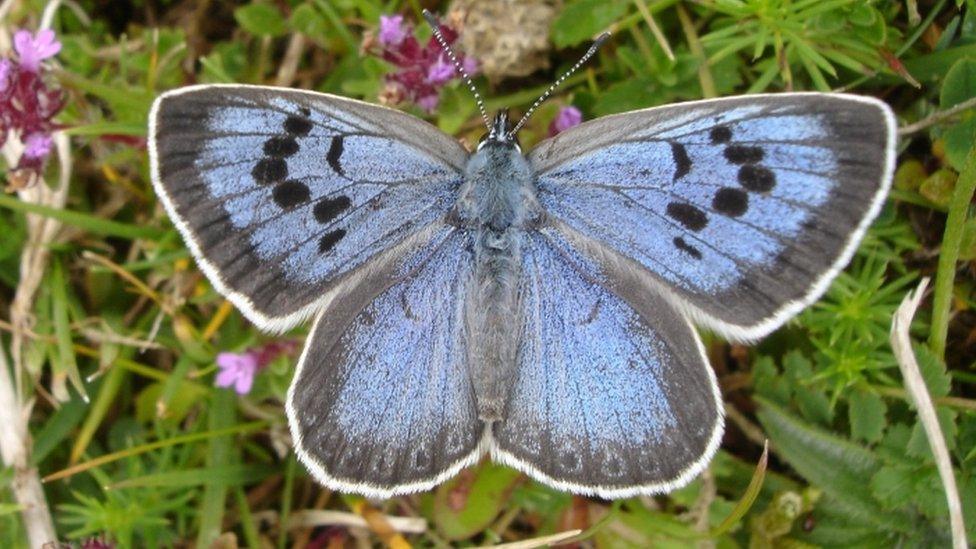
- Published27 August 2016
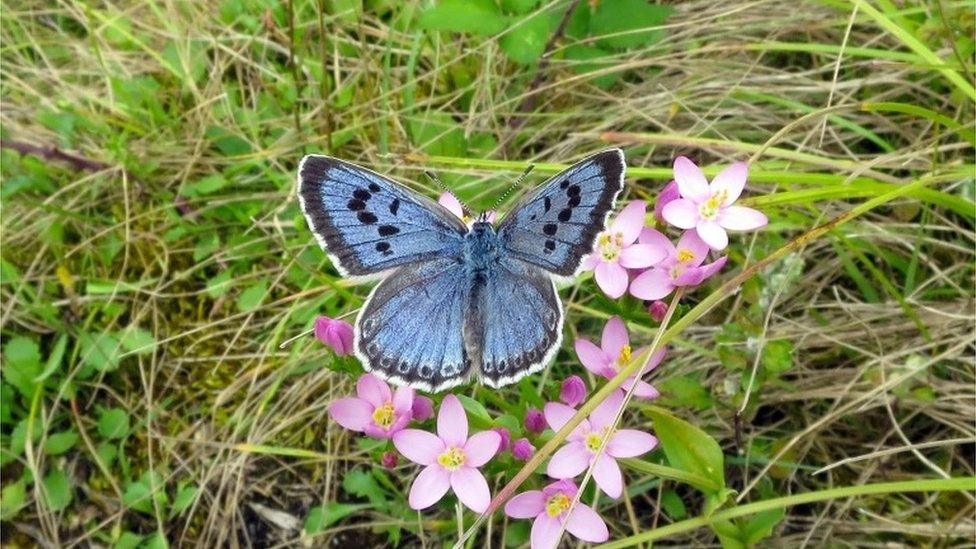
- Published12 March 2016
